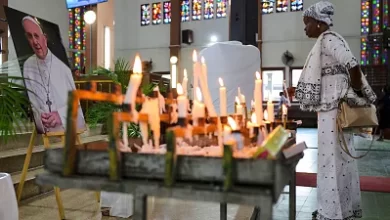
The Ghanaian cedi continues its downward trend against the US dollar, with its year-to-date loss now standing at approximately 26%.
This depreciation is attributed to a surge in corporate demand for foreign exchange and recent Eurobond coupon payments, which have put further pressure on the local currency.
To help stabilize the market, the Bank of Ghana conducted a 7-day foreign exchange (FX) auction, accepting all $51.4 million worth of bids.
However, this intervention proved insufficient to halt the cedi’s decline. By the end of the week, the currency had weakened by 0.15% against the US dollar, closing at a mid-rate of GH¢16.38/$.
The local currency also suffered losses against other major currencies, depreciating by 0.24% against the British pound and 0.70% against the euro.
At present, the cedi is trading at GH¢16.40 to one US dollar on the retail market.
This latest round of depreciation comes in the wake of the government’s resumption of Eurobond debt service, following the successful renegotiation of its debt with international bondholders.
As part of this restructuring, the government made payments totaling $520 million, which included a $120 million consent fee and $320 million in deferred coupon payments from 2022.
Despite these efforts, concerns over Ghana’s foreign exchange reserves have resurfaced, as the government prepares to fully resume Eurobond debt servicing in January 2025.
Analysts warn that these concerns, coupled with the ongoing pressure from corporate demand, could further weaken the cedi in the coming weeks.
As the country grapples with these financial challenges, questions linger about the long-term sustainability of its foreign exchange reserves and the impact of Eurobond repayments on the broader economy.
With external debt obligations looming, the government faces the delicate task of balancing fiscal responsibility with efforts to stabilize the cedi and restore investor confidence.
Story by: Mercy Addai Turkson




